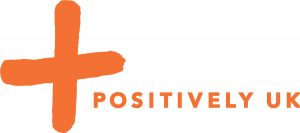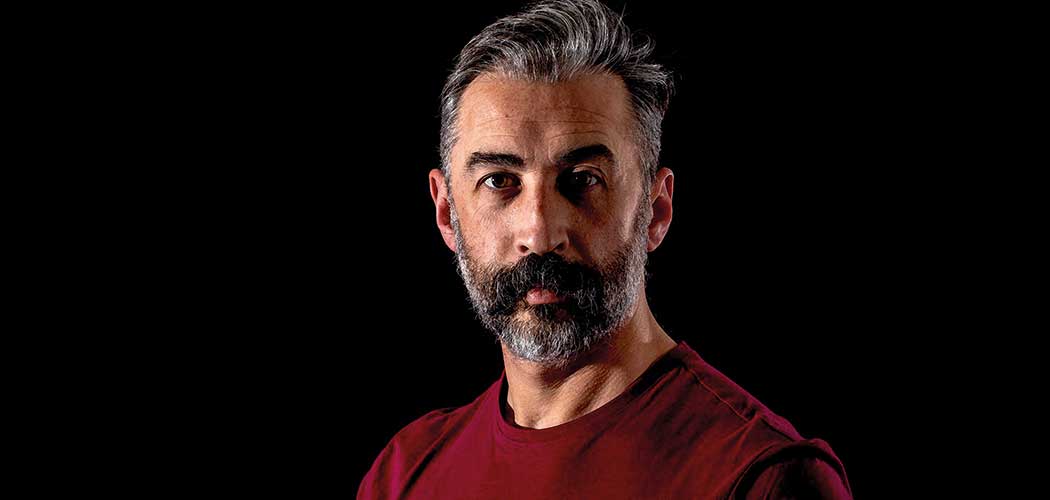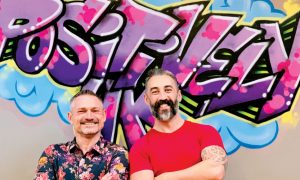Positively UK Gay Men’s Project Lead Chris O’Hanlon on the discrimination and stigma people with HIV can encounter on today’s popular gay hook up and dating apps.
Despite society’s progress in becoming more accepting of people with HIV, stigma on social media still prevails in abundance and it’s something gay men know all too well. People living with HIV remain targets of stigma, moral judgement and discrimination. And surprise, surprise, attitudes in the gay community aren’t helping.
As a gay man living with HIV, the amount of times in the past I have been asked ‘If I’m clean?’ baffled me. Yes, I’m clean, because I shower daily. In fact, I’ve even been known to exfoliate – and even own my own pumice! However, on the question of my status the word ‘clean’ just doesn’t come into it. Being HIV positive doesn’t make me dirty or clean. It doesn’t make me better or worse than the reader of this article. It just means that I have an auto-immune condition. Shocking as this may sound, gentle reader, but I can still work, gym, party and have even been known to stay up past my bedtime on a school night.
Users sharing their status are often met with hostility and vicious comments. Perhaps the marketing of apps like Grindr and Scruff are a contradiction in terms; it’s a safe space where people can say what they like. While our knowledge and awareness of what it means to be HIV positive has grown since its discovery, HIV stigma on apps is still being experienced and is having an overwhelming effect on the mental health of their users.
A historical narrative of three and a half decades of trauma still endures. Open discrimination of people around their HIV status is all too familiar to those who are open about their status online. Messages such as ‘Are you clean?’, ‘Oh, I don’t sleep with poz guys’, ‘I wouldn’t have anything to do with an ugly pile of HIV like you’ and ‘You’re a walking disease, mate’ are a common feature of online dating apps causing many guys to feel under pressure when sharing their HIV status.
In the face of open discrimination and hate online, how are HIV positive men navigating this stigma? Dan 40, from London writes: ‘I didn’t go back onto Grindr until about a year after my diagnosis. I had finally got some confidence up and thought it was time to reconnect. My profile was clear, fun was fine, but I would be happy making some new mates to gym with etc. I didn’t think I would get the messages I did. I had everything from ‘Fancy breeding me, I want to get infected’ to ‘How nasty are you to bring your AIDS to infect others… you irresponsible arsehole’. Since I started medication, I’ve been undetectable so I’m not a risk to anyone. You try educating people, but on Grindr they normally have blocked you before you can respond to them. I can’t say that it hasn’t affected my confidence, you try and put the comments out of your mind, but some are vicious.’
What, if any, are the responsibilities of social media apps like Grindr, which calls itself ‘the world’s largest social networking app for gay, bi, trans, and queer people’; what are they doing to help educate their members? This question seems relevant, after the gay dating network revealed information about its users’ HIV status with third-party companies.
Marcus, 34 says: ‘I don’t have any faith in using online apps. It’s not so much a community as it is a toxic environment where people can say what they like, when they want to, with no real repercussions to their actions. I was using the apps to meet people but now I would prefer to find new ways of interacting rather than from behind a screen. I don’t live in London so there isn’t many gar bars and places to go in my area which makes meeting people a real challenge. I’m not ashamed of my HIV but I just can’t continue to experience the abuse I have online. I will now talk about my HIV when I feel I’ve made more of a connection with someone and sized up to see if they are an educated person’.
In my role as the Gay and MSM Project Lead at Positively UK, the creation and evolution of a community for men living with HIV is key to improving social isolation and helping men to build their confidence and knowledge around living well with HIV. Taking men off apps and back into the real world helps to show them more conducive avenues in meeting like-minded people, increases their social network and helps them realise that their HIV does not define them.
With summer around the corner, maybe this is a great opportunity to make some changes to your routine? While apps can be a wonderful place to find some cheeky fun and frolics, perhaps expanding your horizons by joining a Meetup group, reconnect with some old friends or even start a group yourself may be a step to improving your social circle.
On apps I will say this. Education around HIV is everywhere, so there really isn’t any excuse for ignorance. If you want to know more about HIV then there are multiple charities like Positively UK that can help you understand more about it. Ultimately people living with the condition with an undetectable viral load are not a risk and can’t pass it on. As a community we have a social responsibility to support those living with HIV, thereby reducing our fear. This starts with changing the way we interact with HIV online, through apps like Grindr and Scruff, or in bars and clubs.

For information, support and advice please visit positivelyuk.org














